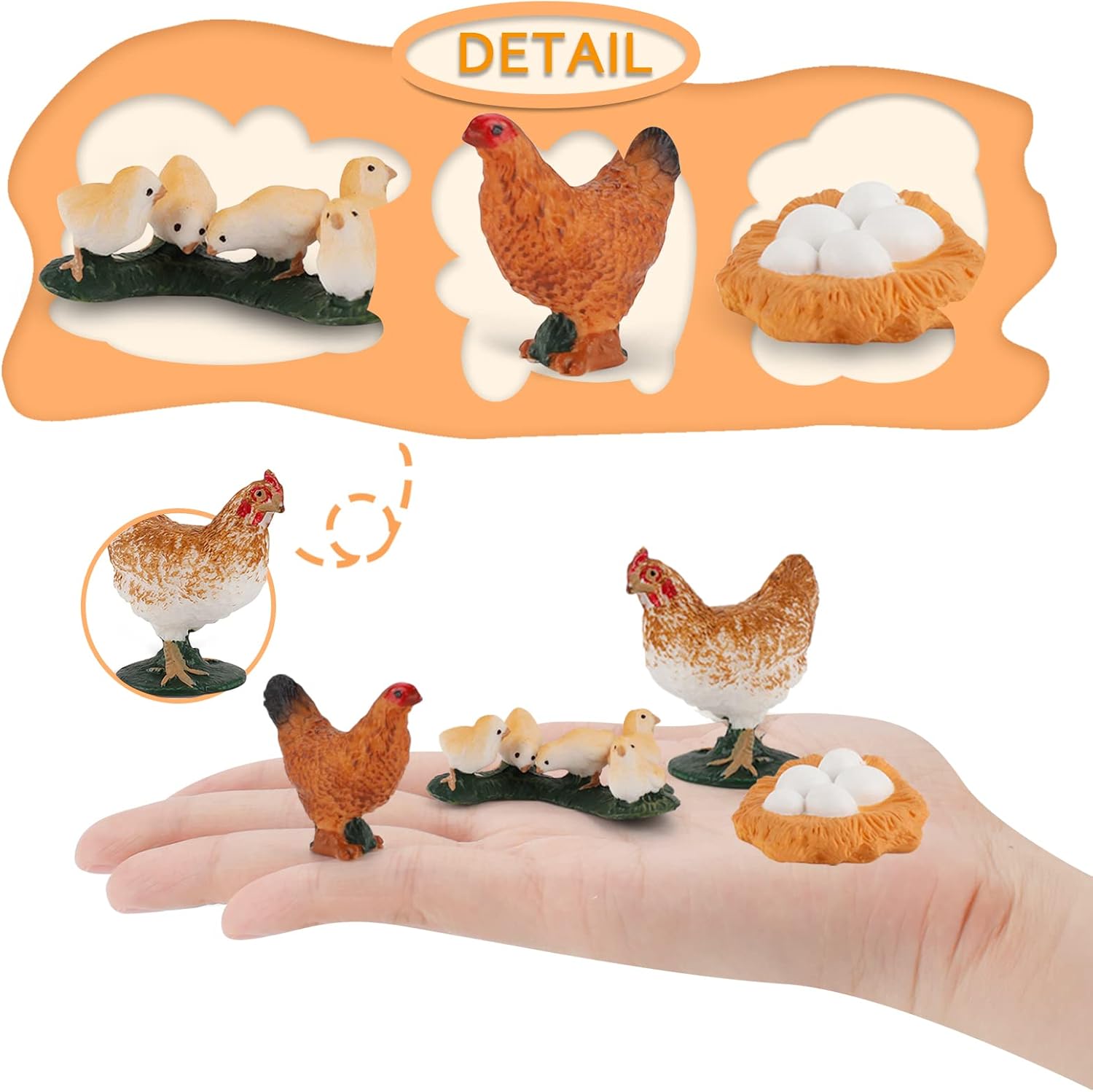The Educational Value Of Campus Farm Animals: A Life Cycle Perspective

Table of Contents
Understanding Animal Life Cycles Through Hands-on Experience
Direct observation is paramount when learning about animal life cycles – from birth to growth, reproduction, and ultimately, death. Campus farm animals provide an unparalleled opportunity for hands-on learning and animal life cycle education. Unlike textbooks or videos, witnessing these processes firsthand fosters deeper understanding and engagement.
- Observing the laying of eggs by chickens and the hatching process: Students can witness the miracle of life, learning about incubation periods, embryonic development, and the care required for newly hatched chicks.
- Tracking the growth stages of a pig or lamb from birth to maturity: This provides a tangible understanding of growth rates, dietary needs, and the changes in behavior as animals mature.
- Witnessing the natural behaviors of different species (mating, foraging, social interaction): This offers insights into animal communication, social structures, and natural instincts, enriching the experiential learning process.
These campus farm animals offer invaluable lessons in animal husbandry and hone vital observation skills.
Promoting Ecological Awareness and Sustainability
Campus farm animals are not just subjects of study; they are integral components of a functioning ecological system. Integrating them into the curriculum allows for exploration of the interconnectedness of life and promotes ecological literacy.
- The role of animals in nutrient cycling (manure as fertilizer): Students can learn about the importance of sustainable practices like composting and the role of manure in enriching the soil. This directly ties into sustainable agriculture.
- Understanding predator-prey relationships within a farm ecosystem: This can involve discussions about biodiversity, the food web, and the delicate balance within the farm environment.
- Exploring sustainable farming practices (organic farming, waste reduction): Students gain firsthand experience with environmentally responsible agricultural methods, contributing to campus sustainability and environmental education. This understanding is crucial for promoting animal welfare and responsible farming practices.
Connecting Classroom Learning to Real-World Applications
Observing animal life cycles on a campus farm directly complements classroom learning in biology, agriculture, and environmental science. It transforms abstract concepts into tangible experiences.
- Applied learning: Students can apply theoretical knowledge gained in the classroom to real-world scenarios, enhancing their understanding and retention.
- Curriculum integration: Campus farm activities can be seamlessly integrated into existing curricula, creating meaningful and engaging learning experiences.
- Interdisciplinary learning: The farm environment fosters interdisciplinary learning, connecting biology, agriculture, environmental science, and even social studies.
- Research opportunities: Students can participate in research projects, collecting data on animal behavior, growth rates, or the impact of different farming techniques. This cultivates practical skills crucial for future studies or careers.
Fostering Responsibility and Empathy Through Animal Care
Direct involvement in animal care cultivates responsibility and empathy. Daily interactions with campus farm animals fosters a deep understanding of their needs and promotes a sense of responsible citizenship.
- Daily chores like feeding, cleaning, and health checks: Students learn about the daily requirements of animal care, instilling a sense of responsibility and commitment.
- Learning about animal behavior and recognizing signs of illness or distress: This develops observational skills and promotes a deeper understanding of animal welfare.
- Developing a sense of responsibility towards the welfare of the animals: This fosters empathy and encourages ethical considerations in their interactions with animals. This crucial aspect of animal welfare fosters compassion and deepens student engagement.
The Economic and Community Benefits of Campus Farms
Campus farms can offer significant economic and community benefits beyond their educational value.
- Economic development: The production of food for campus dining services or the sale of animal products can generate revenue and support sustainable food systems. This contributes to food security and supports local food systems.
- Community engagement: Educational outreach programs, partnerships with local farmers, and community events can create valuable connections and promote shared learning. This fosters community engagement and strengthens partnerships. Outreach programs also highlight the educational value of campus farm animal education.
Reap the Rewards of Campus Farm Animals
In conclusion, the educational value of campus farm animals is undeniable. By providing a holistic, life-cycle approach to learning, campus farms offer unparalleled opportunities to enhance student understanding of ecological systems, promote responsible animal husbandry, and foster empathy and responsibility. The positive impact extends beyond the classroom, fostering personal growth and contributing to the economic and social well-being of the community. We encourage you to explore the potential of incorporating campus farm animals into your educational institutions and to investigate the educational resources available to support the development of campus farm programs. Embrace the transformative power of campus farm animal education and help shape a brighter future for both students and the planet.

Featured Posts
-
 Rpts Poluchila Razreshenie Na Religioznuyu Deyatelnost V Myanme
May 13, 2025
Rpts Poluchila Razreshenie Na Religioznuyu Deyatelnost V Myanme
May 13, 2025 -
 Sefilnt Gioynaitent I Niki Kai I Atypi Giorti Toy Mpalntok
May 13, 2025
Sefilnt Gioynaitent I Niki Kai I Atypi Giorti Toy Mpalntok
May 13, 2025 -
 Ncaa Tournament Deja Blue Kellys Oregon Matchup Against Duke
May 13, 2025
Ncaa Tournament Deja Blue Kellys Oregon Matchup Against Duke
May 13, 2025 -
 Sabalenkas Dominant Performance Secures Madrid Open Win
May 13, 2025
Sabalenkas Dominant Performance Secures Madrid Open Win
May 13, 2025 -
 Aryna Sabalenka And Coco Gauff Secure Rome Open Wins
May 13, 2025
Aryna Sabalenka And Coco Gauff Secure Rome Open Wins
May 13, 2025
